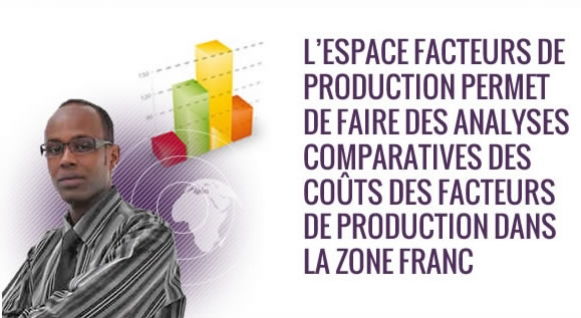Summary of the taxes applicable in Togo
The Togolese General Tax Code comes from Law No. 83-2. of December 30 1983 establishing a "Tax Code regulating the direct and indirect taxes, registration fees and stamp duties, tax control and collection".
The new Code was substituted to the following :
- Law No. 65-13 of July 2. 196. on the codification of direct taxes ;
- Law No. 66-1. of December 8 196. on codification of indirect taxes ;
- Resolution No.. / CP / ATT of December 17 195. codifying the registration and stamp duties. .
It has been updated in accordance with the tax provisions :
- Law No. 2013-00. of January 3 2013 regarding finance and management law, 2013
- Law No. 2014-00. of January 8 201. finance and management law, 2014
Table 1 : Corporate taxes
|
|
Corporate taxes
|
|---|---|
|
Taxable persons |
Are liable to corporation tax regardless of their purpose :
Are also subject to the tax on companies even when they do not take on one of the forms mentioned in the previous paragraph, civil societies when they engaged in business or operations whose results fall within the category of industrial and commercial benefits if they were made by a natural person.
Partnerships, limited partnerships, sole proprietorships with limited liability, when the sole shareholder is an individual and joint ventures are subject to corporate income tax if they opt for their subjection to this tax. The same option can be exercised by civil partnerships other than those subject of right to the corporate income tax under the provisions of paragraph. above, including farming groups in common. Companies of people from the previous transformation of capital companies without creating a new legal entity may not opt for the capital companies plan except if the option is concurrent to the process.
Even without option, the corporate tax is applicable in limited partnerships and joint ventures including financial unions, the share of profits for the rights of the sponsors and those of other partners as unlimited liability or whose names and addresses were not listed in the Administration.
Subject to the exemptions, public institutions other than scientific, educational and assistance as well as associations and not subject to tax authorities on companies under another provision are subject to that tax due to : - Leasing of developed and undeveloped property they own ; - The exploitation of agricultural and forestry property ; - The investment income they have, with the exception of dividends of Togolese companies, where such income does not fall within the application of withholding tax. For the purposes of these provisions, the investment income is counted as taxable income on a gross basis. |
|
Exemption |
Are exempt from corporation tax :
|
|
Rate |
For the calculation of the tax, any portion of the taxable income of less than 1,000 francs is neglected.
The rate of corporation tax is set at 29% of taxable income.
|
|
Minimum lump corporate tax |
The companies and other legal entities subject to corporation tax are subject to a minimum flat tax.
The rate is 1% of the total turnover including tax, excluding the value added tax (VAT), of the last financial year.
The annual amount of that tax is set at fifty thousand (50,000) CFA francs for companies with turnover of less than five million (5,000,000) CFA francs. It is limited to five hundred million (500,000,000) CFA francs for any company with annual annual sales exceeding fifty billion (50 billion) CFA francs. The turnover corresponds to that of all transactions made by the Company in the performance of its current job. However, these same corporations marketing products of which the permissible gross margin is set at a specific amount per quantity or unit of product sold under a decree of the Minister of Commerce, the basis is constituted by that margin.
|
|
Minimum flat tax for individuals
|
Individuals liable to income tax because of their industrial, commercial or non-commercial activities are subject, regardless of the results of operations, to pay the minimum tax after the base and the rate set out in Article 163. The annual amount of that tax is set at fifty thousand (50,000) CFA francs for companies with turnover of less than five million (5,000,000) CFA francs. It is limited to five hundred million (500,000,000) CFA francs for any company with annual annual sales exceeding fifty billion (50 billion) CFA francs (50 000 000 000) CFA francs. However, for these same individuals marketing products of which the permissible gross margin is set at a specific amount per quantity or unit of product sold under a decree of the Minister of Commerce, the basis is that margin.
|
Table 2 : tax on personal income
|
|
Tax on personal income |
||||||||||||||||||||||||||||||
|---|---|---|---|---|---|---|---|---|---|---|---|---|---|---|---|---|---|---|---|---|---|---|---|---|---|---|---|---|---|---|---|
|
Taxable persons |
There shall be a single annual income tax on individual income designated by the name of tax on income that affects the overall net income of the taxpayer That total net income consists of the total net income of the following categories: - Salaries, wages, allowances, emoluments, pensions and annuities ; - Property income ; - Industrial, commercial and craft profits ; - Benefit of farms ; - Benefits for non-commercial professions and related revenues ; - Investment income ; - Remuneration paid to directors and associates of some companies ; - Gains on disposal for consideration of certain goods or certain rights *
are liable to tax in income on their whole income whether it is of Togolese source or of foreign source : - Togolese or foreign natural persons who have their tax residence in Togo ; - The sole member of a single-member limited liability company domiciled in Togo, in the case of a natural person. 2- Subject to the application of international tax treaties, individuals of Togolese or foreign nationality who do not have their tax domicile in Togo, are liable to income tax in Togo if they have income of a Togolese source or if they have in Togo one or more dwellings. 3- are also liable to income tax, individuals of Togolese or foreign nationality having their tax domicile in Togo or not if they acquire income or benefits of which the taxation is attributed to Togo by an international agreement relating to double taxation. |
||||||||||||||||||||||||||||||
|
Exemption |
Are exempt from the tax on income : 1 - individuals whose total net income does not exceed the inter professional guaranteed minimum wage ; 2 - Ambassadors and Diplomatic Agents, Consuls and Consular Agents of foreign nationality under reciprocal conditions. This exemption, however, aggects only the official salaries of the interested and private income of a foreign source perceived by them. |
||||||||||||||||||||||||||||||
|
Rate |
Net taxable income is equal to gross income minus deductions made by the employer (pensions, retirement, employee premiums, benefits in kind), 10% deducted for business expenses. On the result obtained, 15% is finally substracted (5% for amounts exceeding 10 million CFA francs per year).
The determined total net income is reduced by a fixed amount per dependent. This amount is equal to a sum of seventy-two-thousand (72,000) CFA francs per dependent. It is capped at four hundred thirty-two thousand (432,000) CFA francs per year.
After the reduction, the total net income in thousand francs rounded to a thousand franc less is the subject of the application of the scale in increments of income and progressive rates below :
|
||||||||||||||||||||||||||||||
Table 3 : Business tax - related taxes
|
|
Business tax - related taxes
|
||||||||||||||
|---|---|---|---|---|---|---|---|---|---|---|---|---|---|---|---|
|
Taxable persons |
The business tax is payable each year by natural or legal persons regularly carrying on self-employment not subject to the exemptions provided for in Article
Business tax is established according to the tax capacity of the obliged calculated according to economic criteria based on the importance of activities by them in the territory of Togo. |
||||||||||||||
|
Exemption |
Are exempt from business tax :
|
||||||||||||||
|
Rate |
The rates by branch of activities, sales or value of the products used in the calculation of the business tax, details of which are attached to this article, are :
The rate to be applied to the rental value of the premises, deposit courses, wharves and other locations used for the performance of taxable professions including facilities of any kind subject to the property tax is 6%.
|
Table 4 : Special tax on the manufacture and trade of beverages
|
|
Special tax on the manufacture and trade of beverages
|
||||||||||||
|---|---|---|---|---|---|---|---|---|---|---|---|---|---|
|
Taxable persons |
There shall be a designated tax under the special tax name in the manufacture and sale of beverages. The amount is included in the sale price of the drinks. |
||||||||||||
|
Exemption |
The special tax on the manufacture and trade of beverages is not applicable to the manufacture and marketing of non-fermented traditional beverages such as millet or corn beer, or liha, etc. |
||||||||||||
|
Rate |
The fees due under the special tax on the manufacture and trade of beverages by importers and manufacturers are based on the following rates :
The special tax on the manufacture and trade of beverages is not applicable to the manufacture and marketing of non-fermented traditional beverages such as millet or corn beer, or liha, etc. |
Table 5 : Value Added Tax
|
|
Value Added Tax
|
|---|---|
|
Taxable transactions |
A-taxable transactions
Are subject to value added tax accrues to the general budget, the supply of movable assets and services effected for consideration by a taxable person acting as such.
Are also subject to the value added tax unless specific exemptions :
Accordingly, the products obtained in the free zone from local raw materials or originating from ECOWAS Member States are subject to the value added tax and all other rights and customs duties upon importation from the free zone by the customs territory. These other duties and taxes being components of the basis of calculation of the value added tax in accordance with article 317 Bis of the present code ;
B- Taxable transactions per option
May be subject to the value-added tax on the option of the obliged :
The option which must be issued before November 30 is exercised for a period of two (02) years from January. of the following year. It is subject to the approval of the Director general of taxes and is renewed by tacit renewal at the end of the period, unless notice of termination before November 30 of the second year.
|
|
Taxable persons |
Sont assujetties à la taxe sur la valeur ajoutée, les personnes physiques ou morales qui effectuent d’une manière indépendante à titre habituel ou occasionnel, une ou plusieurs opérations soumises à la taxe quels que soient le statut juridique de ces personnes, leur situation au regard des autres impôts et la forme ou la nature de leur intervention, lorsqu’elles réalisent un chiffre d’affaires supérieur à 30 millions. Companies whose turnover falls below the limit specified in the preceding paragraph, continue to observe their filing and payment obligations for three (03) consecutive years. However, when during the year, the total turnover limit is reached, the liability to VAT takes effect from 1st day of the month of the realization of the condition. |
|
Rate |
The rate of the value-added tax is a single rate of 18% applicable to all activities and all products except those exempt. However, with regard to leasing operations, the rate to apply to rent is that of the property at the time of purchase. |
SEE ALSO (in French): Customs Fees in West Africa – Togo, Local Taxes and VAT in Togo













